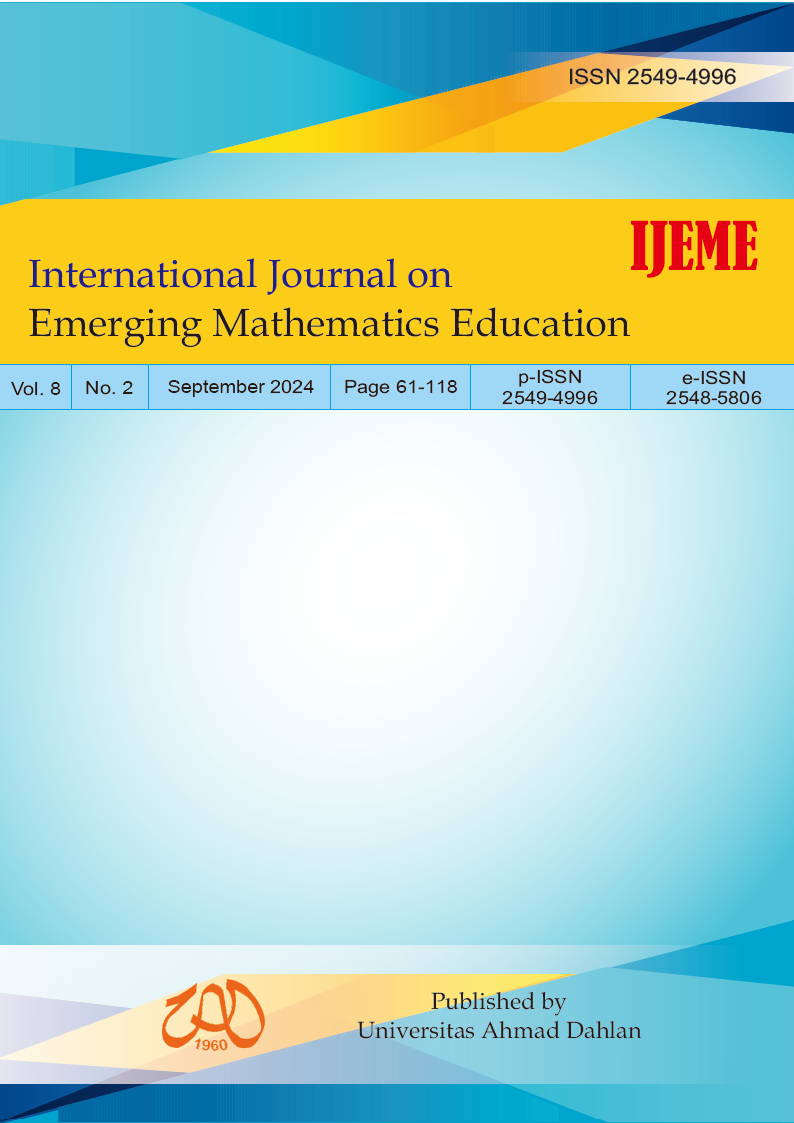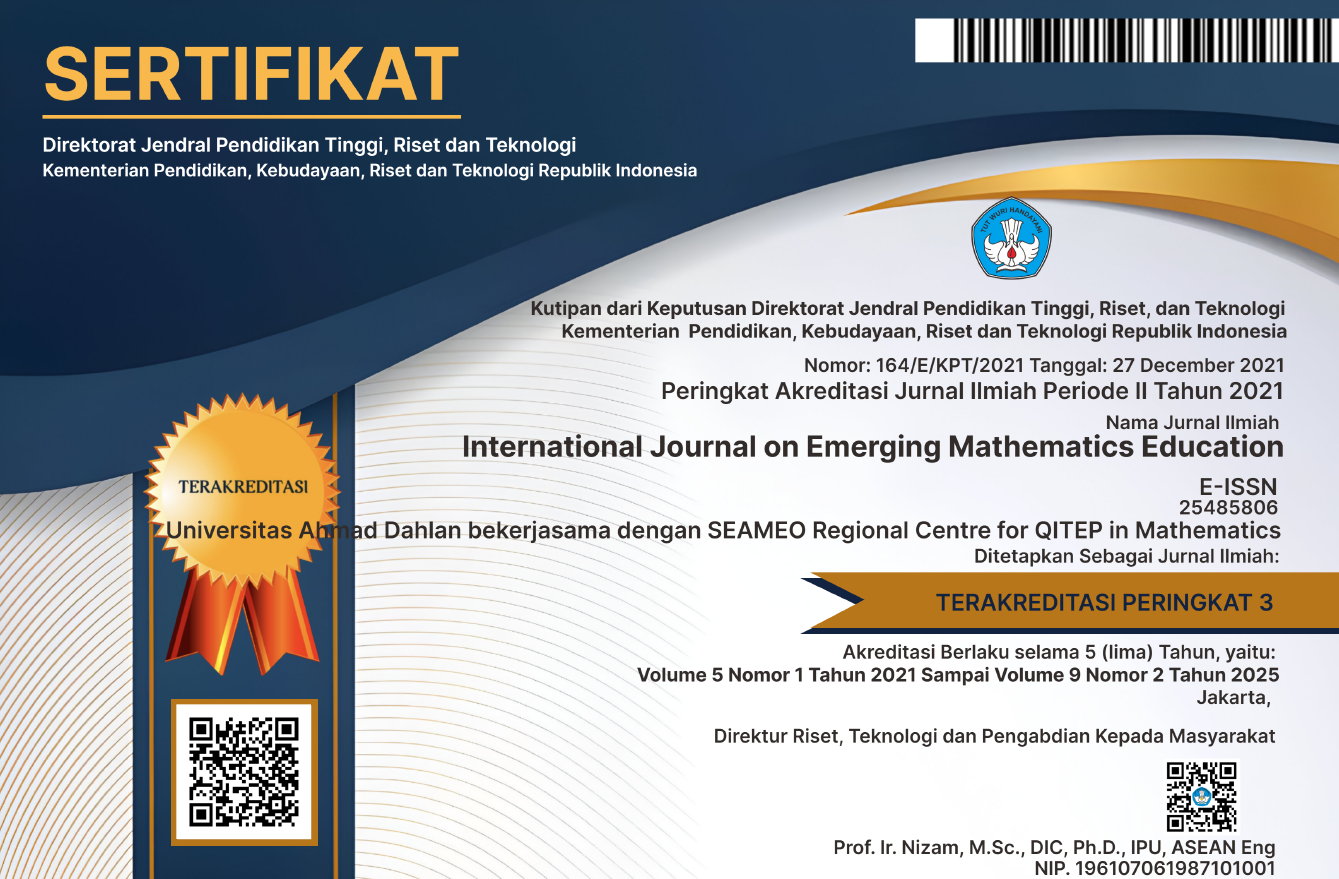Students' Mathematical Problem Solving Ability of Class-VIII Through the Geogebra-Assisted POGIL Learning Model
DOI:
https://doi.org/10.12928/ijeme.v8i2.26585Abstract
This study aims to determine differences in mathematical problem-solving abilities between the experimental class through the Geogebra-assisted POGIL (Process Oriented Guided Inquiry Learning) learning model and the control class through conventional learning and to determine mathematical problem-solving abilities after being treated with the POGIL (Process Oriented Guided Inquiry) by Geogebra-assisted. This study used a mixed method with a sequential-explanatory type. The study recruited class VIII of SMPN 2 Prigen. The research sample was class VIII-A (the control class) and class VIII-C (the experimental class). The results showed that (1) there were differences in the mathematical problem-solving abilities of the experimental class through the Geogebra-assisted POGIL (Process Oriented Guided Inquiry Learning) learning model and the control class through conventional learning. (2) the mathematical problem-solving abilities of class VIII students of SMPN 2 Prigen using the Geogebra-assisted POGIL (Process Oriented Guided Inquiry Learning) learning model are better than using conventional learning modelsDownloads
Published
How to Cite
Issue
Section
License
Copyright (c) 2025 Nabila Alifa Shandhita Putri, Surya Sari Faradiba, Gusti Firda Khairunnisa

This work is licensed under a Creative Commons Attribution-ShareAlike 4.0 International License.
License and Copyright Agreement
In submitting the manuscript to the journal, the authors certify that:
- They are authorized by their co-authors to enter into these arrangements.
- The work described has not been formally published before, except in the form of an abstract or as part of a published lecture, review, thesis, or overlay journal. Please also carefully read the International Journal on Emerging Mathematics Education (IJEME) Author Guidelines at http://journal.uad.ac.id/index.php/IJEME/about/submissions#authorGuidelines
- That it is not under consideration for publication elsewhere,
- That its publication has been approved by all the author(s) and by the responsible authorities, tacitly or explicitly, of the institutes where the work has been carried out.
- They secure the right to reproduce any material that has already been published or copyrighted elsewhere.
- They agree to the following license and copyright agreement.
Copyright
Authors who publish with the International Journal on Emerging Mathematics Education (IJEME) agree to the following terms:
- Authors retain copyright and grant the journal the right of first publication with the work simultaneously licensed under a Creative Commons Attribution License (CC BY-SA 4.0) that allows others to share the work with an acknowledgment of the work's authorship and initial publication in this journal.
- Authors are able to enter into separate, additional contractual arrangements for the non-exclusive distribution of the journal's published version of the work (e.g., post it to an institutional repository or publish it in a book), with an acknowledgment of its initial publication in this journal.
- Authors are permitted and encouraged to post their work online (e.g., in institutional repositories or on their website) prior to and during the submission process, as it can lead to productive exchanges, as well as earlier and greater citation of published work.
![]()
Ciptaan disebarluaskan di bawah Lisensi Creative Commons Atribusi-BerbagiSerupa 4.0 Internasional.





